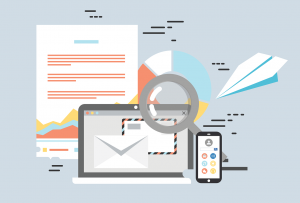Transforming the World Through Google’s AI Innovations
Artificial Intelligence (AI) has emerged as a groundbreaking technology, transforming industries and revolutionizing the way we interact with the world. Google, a global technology giant, has been at the forefront of AI research and development. With its vast resources and cutting-edge expertise, Google is leveraging AI to unlock new possibilities and reshape various sectors. In this article, we will explore how Google is harnessing the power of AI to drive innovation, enhance user experiences, and shape the future.
Google Assistant: Enhancing Everyday Life
Google Assistant, an AI-powered virtual assistant, has become an integral part of millions of users’ daily routines. By combining natural language processing, machine learning, and voice recognition, Google Assistant enables users to interact with their devices effortlessly. Whether it’s setting reminders, answering queries, or controlling smart home devices, Google Assistant has transformed the way we engage with technology. Moreover, Google’s ongoing advancements in AI are continually improving the Assistant’s contextual understanding and responsiveness, making it an even more valuable and indispensable tool.
Google Translate: Breaking Down Language Barriers
Language barriers have long hindered effective communication and collaboration across cultures. However, Google’s AI-driven translation service, Google Translate, is changing that. By utilizing machine learning algorithms, Google Translate can analyze and translate text across multiple languages. Through continuous improvement and training, it has evolved into a powerful language tool that supports over 100 languages. Whether for personal use or business interactions, Google Translate has become an invaluable resource, connecting people from different linguistic backgrounds and fostering global understanding.
Google Photos: Organizing Memories with AI
Digital photography has revolutionized the way we capture and store our memories, but managing vast collections of photos can be overwhelming. Google Photos tackles this challenge by leveraging AI to organize and enhance the user’s photo library automatically. With features like automatic tagging, content recognition, and intelligent search, Google Photos makes it easy to find specific photos based on objects, people, or locations. The application of AI in Google Photos not only saves users valuable time but also helps them rediscover cherished moments with ease.
Google Maps: Navigating the World Seamlessly
Google Maps has become the go-to navigation app for millions of people worldwide. However, its efficiency and accuracy are greatly enhanced by AI. By analyzing vast amounts of data, including historical traffic patterns, real-time updates, and user feedback, Google Maps can provide optimized routes, real-time traffic information, and even predict congestion patterns. Through AI-powered features like “Explore” and “For You,” Google Maps assists users in discovering nearby places of interest and personalized recommendations, making it an indispensable travel companion.
Google’s DeepMind: Pushing the Boundaries of AI
DeepMind, an AI research lab acquired by Google in 2014, has made significant advancements in various AI domains. From defeating world champions in complex board games like Go and Chess to applying AI in healthcare for disease diagnosis and treatment planning, DeepMind’s groundbreaking research pushes the boundaries of what AI can achieve. By combining Google’s resources and DeepMind’s expertise, Google aims to unlock the full potential of AI to solve complex problems and make a positive impact on society.
Google Ads and AI-Powered Marketing
Google Ads is a leading digital advertising platform that utilizes AI to deliver more targeted and relevant ads to users. By leveraging machine learning algorithms, Google Ads can analyze user behavior, preferences, and demographics to optimize ad targeting and placement. This not only benefits advertisers by maximizing their reach to potential customers but also enhances user experiences by presenting them with ads that are more aligned with their interests.
Google Cloud and AI-Powered Solutions
Google Cloud offers a wide range of AI-powered solutions that empower businesses with advanced analytics, machine learning capabilities, and data processing. Through services like AutoML, businesses can leverage AI to automate and streamline their operations, extract valuable insights from large datasets, and enhance decision-making processes. Google Cloud’s AI capabilities enable organizations to unlock the full potential of their data and gain a competitive edge in today’s data-driven landscape.
Google’s Commitment to Ethical AI
As AI continues to evolve, concerns about ethics and responsible AI deployment have come to the forefront. Google recognizes the importance of ethical considerations in AI development and has taken significant steps to address them. The company has established AI principles that emphasize fairness, transparency, and accountability. Google actively collaborates with the broader research community to develop guidelines and frameworks that promote ethical AI practices, ensuring that AI technologies are developed and deployed responsibly.
Google’s AI in Healthcare
Google is actively exploring the applications of AI in healthcare to improve patient outcomes and revolutionize the industry. Through collaborations with medical institutions and research organizations, Google is harnessing AI to assist in disease diagnosis, drug discovery, and medical imaging analysis. AI algorithms can analyze vast amounts of medical data, identify patterns, and provide insights that aid healthcare professionals in making more accurate diagnoses and treatment decisions.
Future Possibilities: Google and AI
Looking ahead, the potential for Google’s AI innovations is vast. Google continues to invest in AI research and development, exploring emerging technologies like natural language processing, computer vision, and reinforcement learning. The integration of AI with other technologies such as augmented reality, virtual reality, and the Internet of Things opens up exciting possibilities for creating more immersive experiences, enhancing productivity, and transforming various industries.
Conclusion
Google’s relentless pursuit of AI-driven innovation has reshaped industries and transformed the way we interact with technology. From virtual assistants and translation services to navigation tools and photo management applications, Google’s AI-powered solutions have become an integral part of our daily lives. As Google continues to leverage AI, invest in research and development, and address ethical considerations, we can expect even more groundbreaking advancements that will shape the future and propel us into a new era of possibilities.



